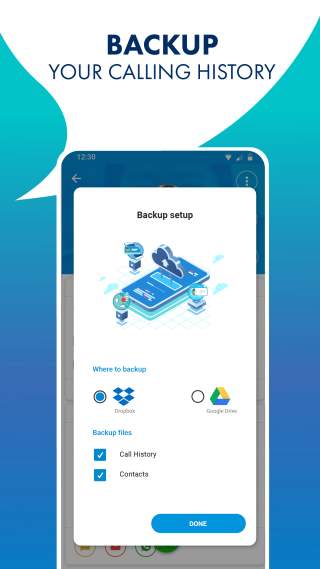CallApp; South Africa's Number 1 App to filter spam
For starters, CallApp lets you consign irritations like scammers, telemarketers, and those infuriating robot pests to history. And it lets you always see who’s calling, too – and even who’s been snooping at your profile too! Just these two features are already likely to solve the majority of your problems.
That’s because CallApp has the biggest database of phone numbers in the industry, as well as the most sophisticated Caller ID technology. And it also provides protection against number spoofing, which is one of the most insidious scams in existence, tripping up even the most vigilant consumers. CallApp’s number verification protocols ensure that the number you see on your smartphone is legit.
Also included among CallApp’s comprehensive list of communication features is a call recording tool, allowing you to keep an audio record of your conversations for future reference, and to settle arguments about who said what. Plus, the app comes with its own analytics feature, giving you a treasure trove of data on your phone habits.
You can check up on the number of calls you’ve made, the number of calls you’ve received, how long you’ve spent on the phone, and much more information besides to serve whatever purpose your heart desires100 million users globally have downloaded CallApp, with close to three-quarters of a million leaving reviews on the Google Play Store. It works in 22 languages, too.You can download and use CallApp for free, though the premium version gives you access to additional features and strips out the ads. This can be purchased, or earned for free through a unique referral program.
To enter the future of communication, simply download CallApp from the Play Store link below: Download: CallApp (Play Store Link)
SPAM SMS FROM SA’S INSURERS TO COME TO AN END
Consumers will soon be able to opt-out of unwanted SMS communication from insurance companies thanks to a draft replacement of the Policyholder Protection Rules (PPRs) by the Financial Services Board (FSB).
Speaking in a recent interview, Lezanne Botha, a senior specialist for the Insurance Regulatory Framework department at the FSB said: “There is existing consumer-protection legislation in place in the form of the Consumer Protection Act. But it's important to bear in mind that the Consumer Protection Act does not apply to insurers.
“It can be said that financial services industries should be held to a higher standard of consumer protection than other industries, because of the risks and the failures in that these products can actually impose considerable hardships for consumers.”
When the new regulations come into effect, estimated to be June 2017, the South African insurance industry will be in-line with international standards. “This is fantastic news for consumers,” remarks SMSPortal MD, Charles Stretch. “The CPA protects consumers against unwanted SMS, currently there isn’t anything to stop insurance companies sending unwanted direct marketing.”
The draft states:
13.10 Unwanted direct marketing
13.10.1 An insurer or any person acting on its behalf must afford a policyholder to whom it markets a policy through a mobile phone voice or text message the right to demand during or within a reasonable time after the message that the insurer or person acting on its behalf desist from initiating any such further messages or any other communication.
13.10.2 An insurer or any person acting on its behalf may not charge a policyholder a fee or allow a mobile phone service provider to charge a policyholder any fee for making a demand in terms of 13.10.1.
Upon implementation, all insurers will need to send SMS communication from a reverse billed number. “This means when consumers reply STOP to an unwanted SMS the sender of the initial SMS, in this case the insurance company, is charged for the SMS, not the consumer,” advises Stretch.
Botha in her interview also said: “Until the effective date if a policyholder gets these calls or SMSs they have to be afforded – by the insurer or the person contacting them on behalf of the insurer – the right to opt out. So, if you received a mobile phone voice message or a text message, the insurer has to afford you the right to demand, during or within a reasonable time after receiving such a message, that they must desist from any further marketing messages. They may also not charge you for making use of that right.”
It’s easy for Pay-As-You-Go mobile subscribers and those without itemised billing to be unaware of the charge being applied to their account. Until the PPR are in place, consumers might see a charge on their bill to opt-out of unwanted insurer communication, but post implementation consumers shouldn’t see a charge. “If you have been wrongfully charged,” adds Stretch, “or would like to seek advice, consumers should speak to WASPA, the Wireless Application Service Providers Association.”
You can listen to the full interview with Lezanne Botha here: http://today.moneyweb.co.za/article?id=644423#.WJsldBhh18f


